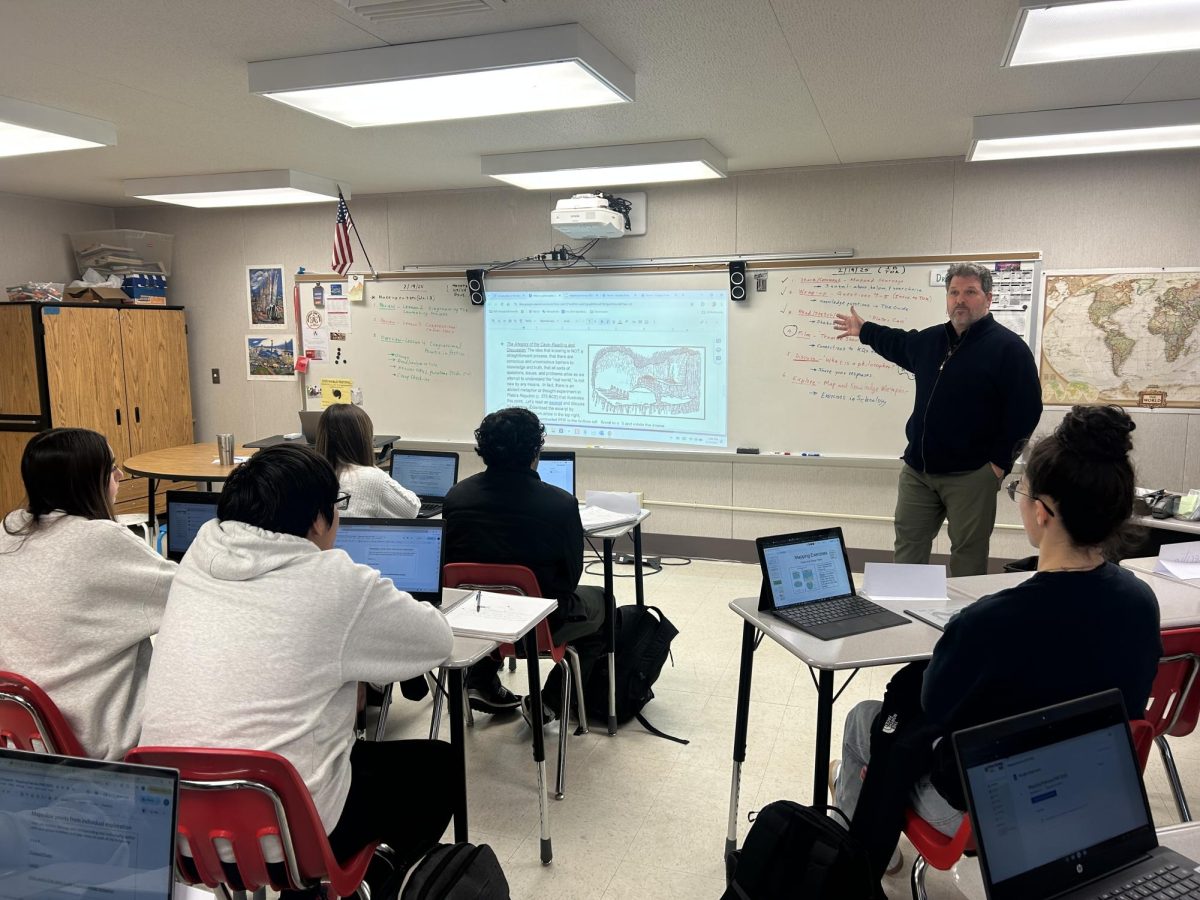Theory of Knowledge (TOK) is an IB course unlike any other offered at Annandale.
Firstly, this course is only offered to IB Diploma candidates and is a requirement of receiving the diploma. Students begin the one-year course the second semester of their junior year and finish it during the first semester of their senior year.
The class is offered in-school as one of a student’s seven courses, with a study hall occupying the semester TOK is not active, or once a week after school for three hours on Mondays or Tuesdays.
“My schedule is really packed and I would rather have [TOK] at the beginning of the week for three hours instead of every other day,” junior Kathleen Tran said. “It’s really strange though, going from having the availability every Monday after school for whatever I needed for my extracurriculars, to having to go to a three hour class that’s really dense,” she added.
This is a large adjustment for juniors especially. Already stacked with the workload of a full IB schedule and extracurriculars that majority of diploma candidates participate in, TOK can seem like a daunting addition; however, due to its socratic-style lessons, it may give students a break from the traditional learning environment.
“TOK is not a typical lecture course reviewing what ancient and modern philosophers may have said on these topics,” TOK teacher Dr. Tim Kelly said. “Rather, it asks students to reflect on their own education and experience, and to draw from that reflection a deeper personal understanding of knowledge questions and the controversies surrounding them.”
The difference in teaching style is another aspect of the course that can be surprising for students as it looks at different “knowledge questions” provided by IB in different “areas of knowledge”: natural sciences, mathematics, the human sciences, history and the arts.
Students also explore how TOK applies in the real world through questions related to the curriculum’s themes of technology, language, politics, religion and indigenous societies. And examined through the IB “knowledge framework” of scope, perspectives, methods, tools, and ethics.
This course is critical to the IB program as it allows students to develop critical thinking skills and understand their perception of the world.
“When done well, TOK is the kind of course where students and teachers have an opportunity to grow and to learn through a layered, progressive process,” Kelly said.
While it initially may be difficult for students to adjust to the changes which accompany TOK, it is a greatly engaging class that provides students with an opportunity to learn in a way they traditionally have, especially with it being a seminar-style class.
“Traditionally, when AHS graduates return, many will recount that TOK was their favorite IB class. TOK allows students to find ‘their voice’ which means they learn how to confidently articulate their beliefs and thoughts, respectfully listen to others, and make informed decisions,” IB coordinator Linda Bradshaw said.









